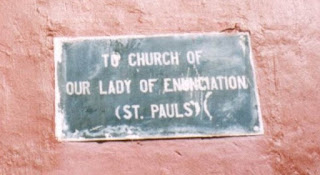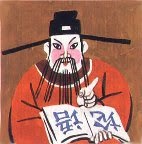The Oxford English Dictionary has this to say about the etymology of ketchup:
app. ad. [apparently adapted from] Chinese (Amoy dial.)
kôechiap or kê-tsiap brine of pickled fish or shellfish
(Douglas Chinese Dict. 46/1, 242/1). Malay kechap (in Du.
spelling ketjap), which has been claimed as the original
source (Scott Malayan Wds. in English 64–67), may be
from Chinese.
In other words, the OED follows Douglas and Scott in assuming the first element of ketchup to be the Chinese word for fish. The actual definition of ketchup follows:
A sauce made from the juice of mushrooms, walnuts,
tomatoes, etc., and used as a condiment with meat, fish,
or the like. Often with qualification, as mushroom ketchup,
etc.
I've always thought this slightly strange. I know the relationship between a word and its referent is arbitrary, but why borrow a term meaning fish sauce to refer to a sauce made of mushrooms, walnuts, and tomatoes?
The Amoy dialect is a Hokkien (Fujian) dialect. I don't speak Hokkien but I do speak Teochew, a closely related Minnan dialect. In Teochew, the word for fish is heu (following the peng im system of romanization as explained at Gaginang.org) ; the word for juice or sauce is jap. But as far as I know, nobody says heu jap for fish sauce. Instead, the online dictionary at Gaginang.org suggests heu jui or heu lou.
On the other hand, the Teochew for tomato is ang mo gio. The last element, gio (Mandarin qié), means eggplant—an ang mo gio is a Westerner's eggplant. I don't know how I would prove it, but doesn't it make more sense for us to think of ketchup as evolving from gio jap?
In case you've glazed over while reading this and are thinking fondly of the stuff itself, I can recommend a highly entertaining chapter in Jeffrey Steingarten's The Man Who Ate Everything (Vintage, 1998) in which he embarks on a quest to find the world's best ketchup, even if he has to make it himself.
Friday, February 26, 2010
Monday, February 22, 2010
May As Well Start With Some Piety ...
 I'm sure the BVM spoke very properly, but this sign (in Malacca) still amused me very much.
I'm sure the BVM spoke very properly, but this sign (in Malacca) still amused me very much.When I was a schoolteacher, one of my colleagues set her class an English composition exercise on "What My Family Does On Sundays".
A student's piece began:
My family goes to mass every Sunday. My church is called Our Lady of Perpetual Sucker.
Subscribe to:
Posts (Atom)



